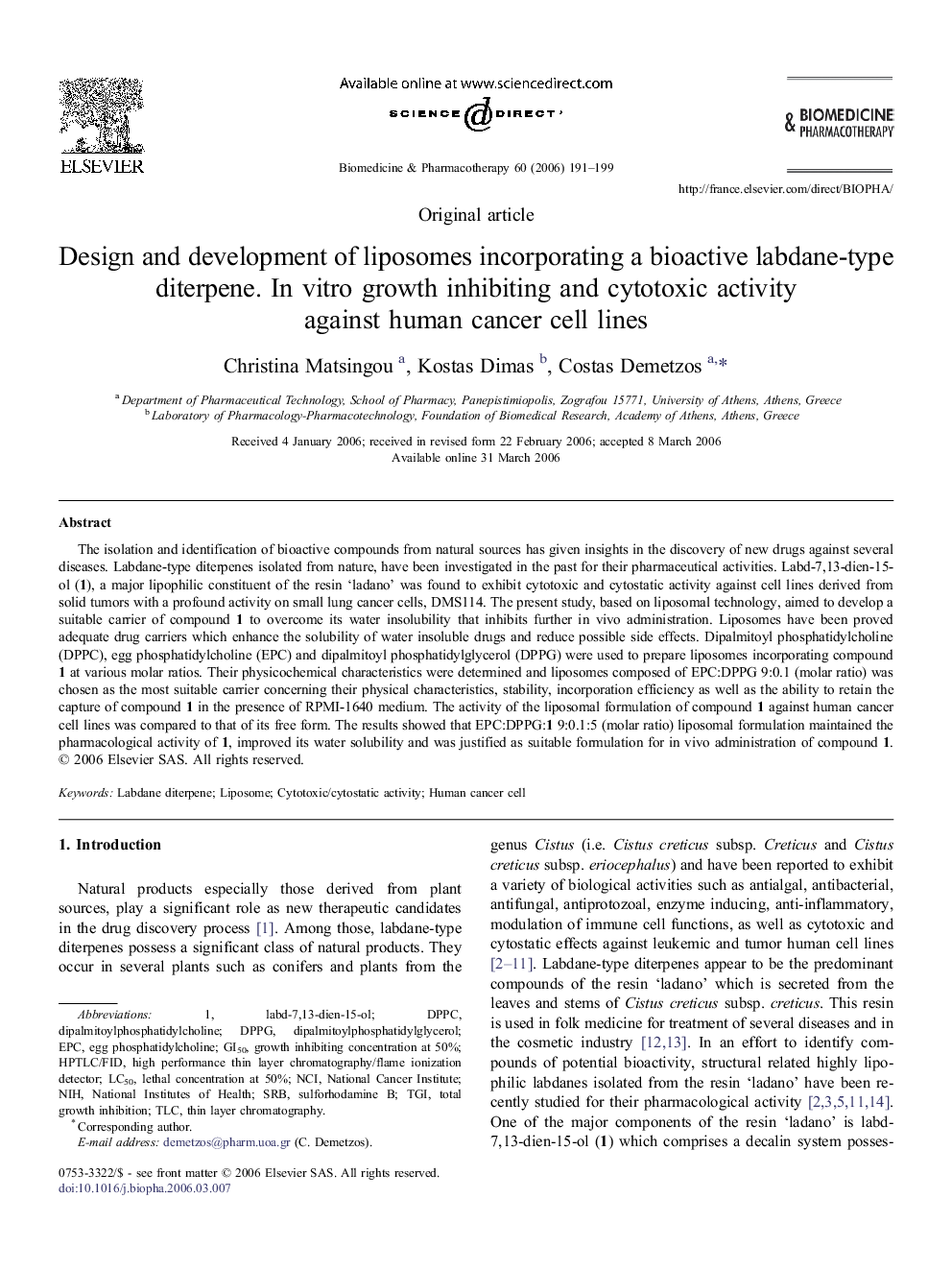| Article ID | Journal | Published Year | Pages | File Type |
|---|---|---|---|---|
| 2525741 | Biomedicine & Pharmacotherapy | 2006 | 9 Pages |
The isolation and identification of bioactive compounds from natural sources has given insights in the discovery of new drugs against several diseases. Labdane-type diterpenes isolated from nature, have been investigated in the past for their pharmaceutical activities. Labd-7,13-dien-15-ol (1), a major lipophilic constituent of the resin ‘ladano’ was found to exhibit cytotoxic and cytostatic activity against cell lines derived from solid tumors with a profound activity on small lung cancer cells, DMS114. The present study, based on liposomal technology, aimed to develop a suitable carrier of compound 1 to overcome its water insolubility that inhibits further in vivo administration. Liposomes have been proved adequate drug carriers which enhance the solubility of water insoluble drugs and reduce possible side effects. Dipalmitoyl phosphatidylcholine (DPPC), egg phosphatidylcholine (EPC) and dipalmitoyl phosphatidylglycerol (DPPG) were used to prepare liposomes incorporating compound 1 at various molar ratios. Their physicochemical characteristics were determined and liposomes composed of EPC:DPPG 9:0.1 (molar ratio) was chosen as the most suitable carrier concerning their physical characteristics, stability, incorporation efficiency as well as the ability to retain the capture of compound 1 in the presence of RPMI-1640 medium. The activity of the liposomal formulation of compound 1 against human cancer cell lines was compared to that of its free form. The results showed that EPC:DPPG:1 9:0.1:5 (molar ratio) liposomal formulation maintained the pharmacological activity of 1, improved its water solubility and was justified as suitable formulation for in vivo administration of compound 1.
